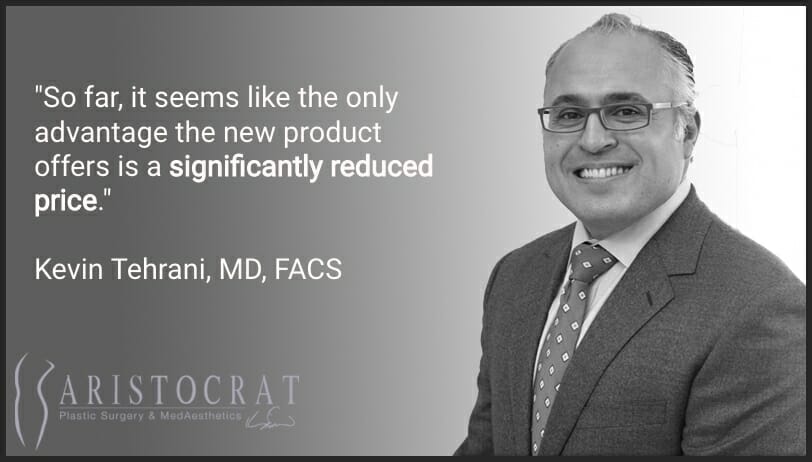Evolus vs. Botox: The New, Better Anti-aging Solution?
The new anti-wrinkling drug has recently been approved by the FDA. Evolus’ stock prices are going through the roof, and aestheticians across the world are already switching to the new product. What is their secret sauce?
First things first: Evolus is the name of the company. The name of the actual anti-wrinkling solution is Jeuveau—that’s how we’re going to call it throughout the article.
Naturally, after the new drug received FDA approval, we were eager to look into the situation.
According to RBC Capital Markets’ Randall Stanicky, a group of surveyed dermatologists said they were ready to switch 43% of their patients to the new drug.
Stanicky found that the results “suggest potential for greater than expected acceptance of Jeuveau”, which is unexpected, given how central Botox has been in the botulinum toxin market. Many practices are very much built on the revenue streams coming from Botox loyalty and partnership programs.

The results were surprising enough for Randall Stanicky to run a second survey.
He found that “61% of physicians rated their willingness to switch away from Botox at a 6 or higher on a scale of 1-10.”
The reason? Dermatologists would be getting the new solution at a discount of 28% on average, and their patients don’t seem to mind the change.
Essentially, They’re The Same Thing
Evolus’s marketing collateral for Jeuveau screams revolution. New this, reworked that.
However, the drug is fully based on a slightly different version of the good-old botulinum toxin, which, as you very well know, is the basis for the drug we know and accept—if not necessarily love.
The way botulinum toxin works is it “disables” your nerve cells in between the eyebrows—so that you don’t frown.

Even when injected with the smallest of doses, botulinum toxin prevents your nerve cells from sending signals to the muscles, effectively paralyzing them. When you don’t frown, your wrinkles do not get worse over time.
Unsurprisingly, clinical studies of over 2,100 patients show high success rates and patient satisfaction.
How Long Do Botulinum Toxin Injections Last?
We do not yet have extensive research with long-term follow ups regarding the new product specifically. However, we do know Botox very well, and, since the new drug is essentially the same thing, we can predict the efficacy and longevity of the replacement.
Based on botulinum toxin, Jeuveau injections are expected to last from 8 to 12 weeks. After that period, the toxin loses its “paralyzing” effect, and the substance needs to be reapplied.
The substance takes 24-72 hours to take effect—”disable” the nerve synapses. In rare cases, up to 10 days are needed for patients to feel the full effect of botulinum toxin.
Botulinum Toxin Injection Risks and Side Effects
In general, botulinum toxin procedures are considered a safe cosmetic treatment. In 2018, 7,437,378 injections had been performed in the US, making it the most popular cosmetic procedure by an impressive margin.
However, there is a risk of serious complications with any botulinum toxin treatment. Namely, if the drug is injected into the wrong muscle, it can cause paralysis in unexpected—and, potentially, dangerous—areas. That’s why it’s extremely important to choose the doctor you have absolute confidence in.
Allergic reactions to botulinum toxin are very rare. For patients with preexisting neuromuscular disorders (e.g., amyotrophic lateral sclerosis, myasthenia gravis, and Eaton–Lambert syndrome), proceeding with the use of the drug is recommended with caution.

Final Verdict: Same Product, New Packaging, Better Price
From what we know about Jeuveau so far, it is very much the good-old botulinum toxin we’ve been successfully using for decades now.
So, for patients, a significant change in the quality or longevity of the procedure is unlikely.
The only thing that is likely to change is the price of the solution. The new product by Evolus is promising a significant discount, which could translate into lower injection prices for the patients.

